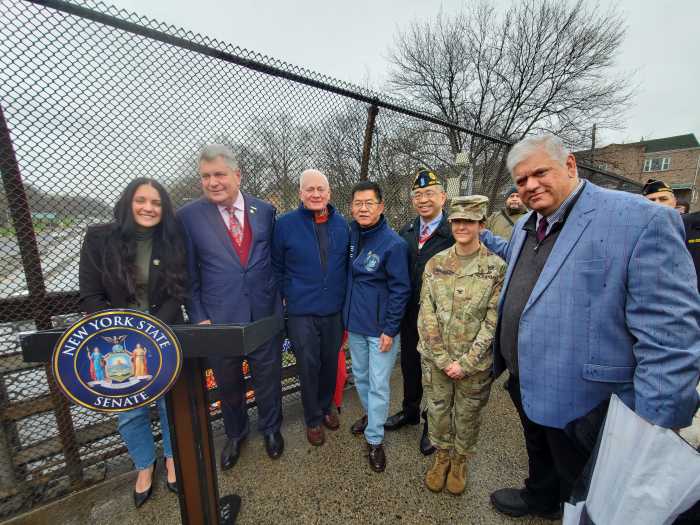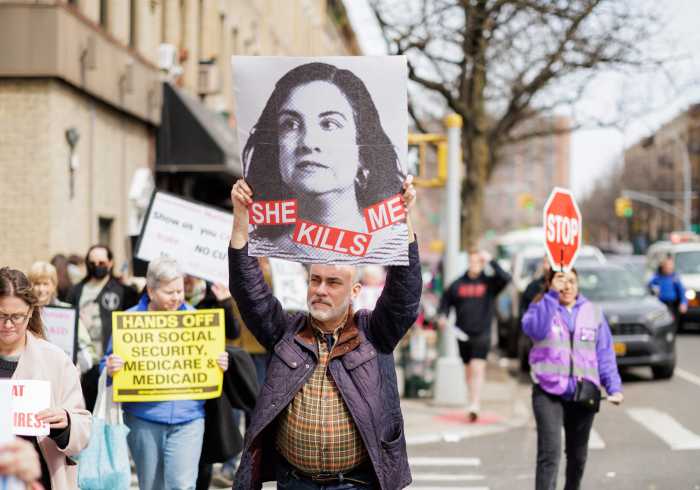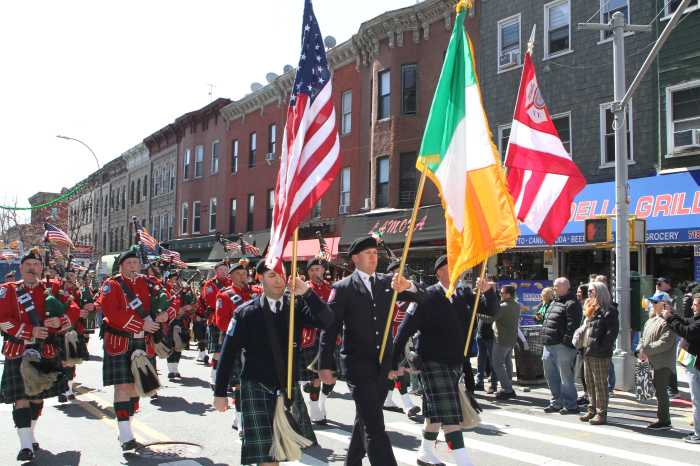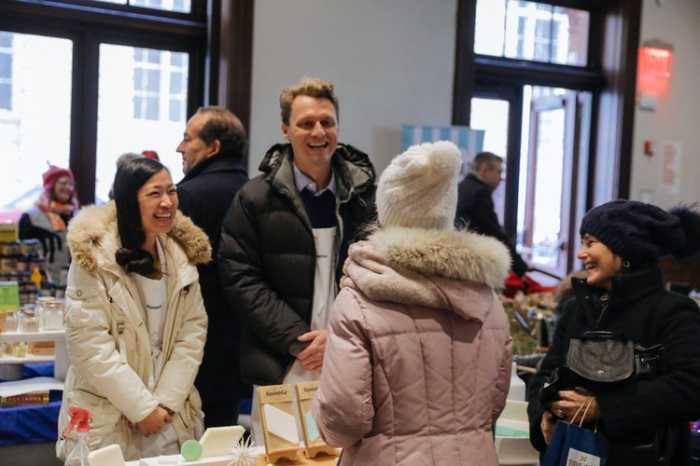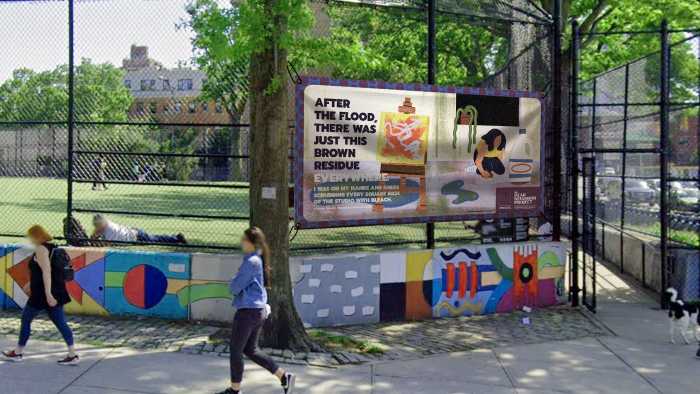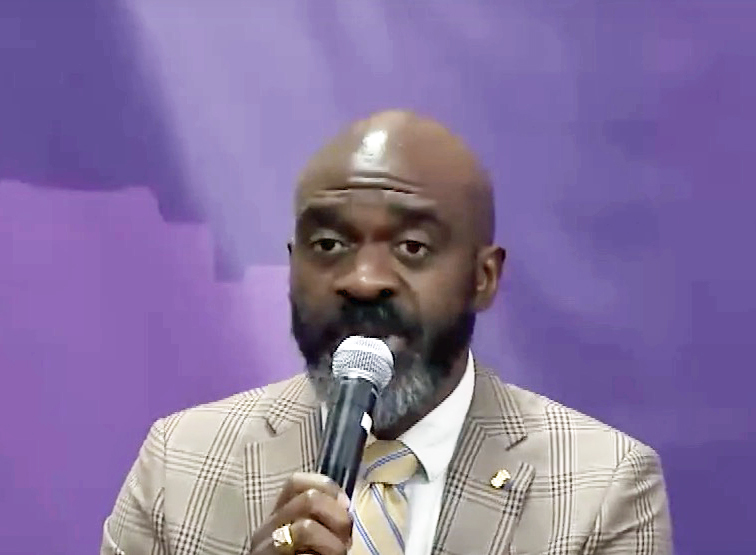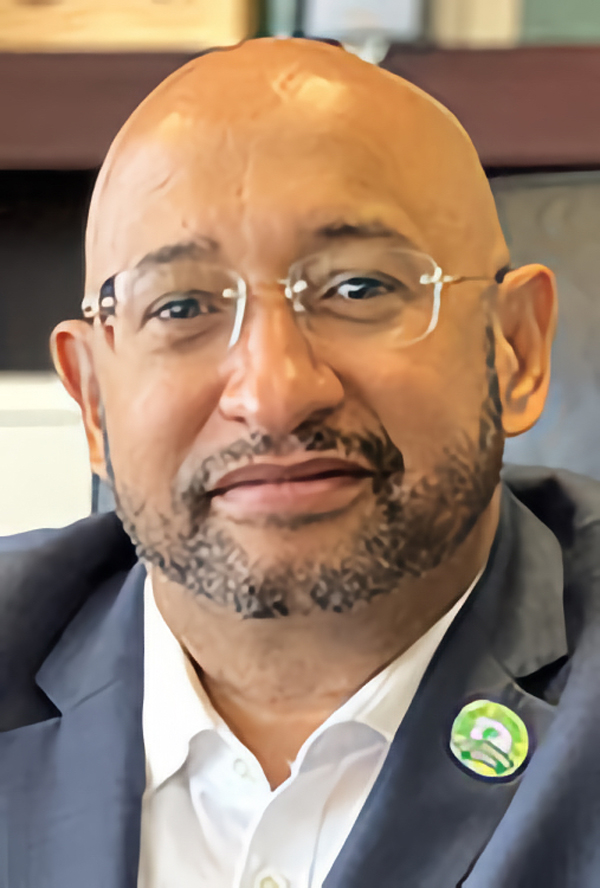It’s eyewitness news!
Dozens trekked to Bay Ridge on Dec. 15 to learn what to do if they witness a hate crime at a workshop triggered in part by a spate of bigoted attacks across the borough in the wake of Donald Trump’s election victory in an effort to help those who have felt helpless since Election Day.
“It felt good to participate in something positive that will let me help my neighbors,” said Bay Ridgite Deanna D’Onofrio. “Our diversity is a strength and I think it’s important that we show the country that we’re supporting our neighbors in whatever way we can.”
The training was the first in a series spearheaded by the Arab American Association that arms people with the strategies they need to safely intervene during a bias attack.
Since Election Day the police department’s Hate Crime Task force has labeled more the 40 incidents possible hate crimes — that’s more than double the number reported for the same time last year.
And crimes against Muslims have surged. In Bay Ridge on Dec. 5, a man yelled bigoted slurs at an off-duty police officer who was wearing a hijab. The disturbing trend shows no sign of slowing, but has also spurred locals who are looking for a way to pitch in, said one organizer.
“We’re seeing a lot of aggression and frustration and I think it’s important to take that and channel it into something productive,” said Crown Heights resident Rachel Sarah Blum Levy, a social worker who ran the workshop. “Most people don’t act because they don’t know what to do or they don’t want to make things worse, but words can diffuse a situation.”
For more than two hours, participants practiced methods to calm a situation before it develops into a full fledge attack, including assertive body language, using “we” statements in order to develop a sense of unity with an aggressor, and repeating the same statement until an attacker corrects their behavior. The workshops also featured role playing exercises to show people the power of simple actions and phrases, said Levy.
“Saying ‘no’ is very powerful,” she said. “When you say it, it can throw someone off guard. It can make them feel vulnerable and that’s why it’s so important to appeal to a perpetrator’s humanity.”
The workshop developed in the days after Donald Trump’s election victory when harassed locals began reaching out to the Arab American Association. One student asked if someone could escort her to school after she was taunted on her commute two days in a row. But what started as a list of 30 people signing up to walk a teenager to school ballooned into 8,300 people from across the city itching to get involved and support those being targeted.
The surge of support is indicative of a larger trend, said the deputy director of the Arab American Association.
“We’re in an unprecedented moment where people are desperate to get involved,” said Kayla Santosuosso. “It’s a moment of crisis, but there’s also a ton of energy from people who want to protect and support their neighbors.”
Over the weekend two workshops — one in Sunset Park and another in Manhattan — took place. Organizers hosted a third training on Monday and are planning two more seminars in Queens.
Locals won’t walk out of the workshops prepared for every situation but it’s a good place to start, said Levy.
“I can’t guarantee a lot in this world with Donald Trump as president but I can guarantee that you’re going to mess up and that’s okay,” said Levy. “But we have to move on with grace and dignity.”


